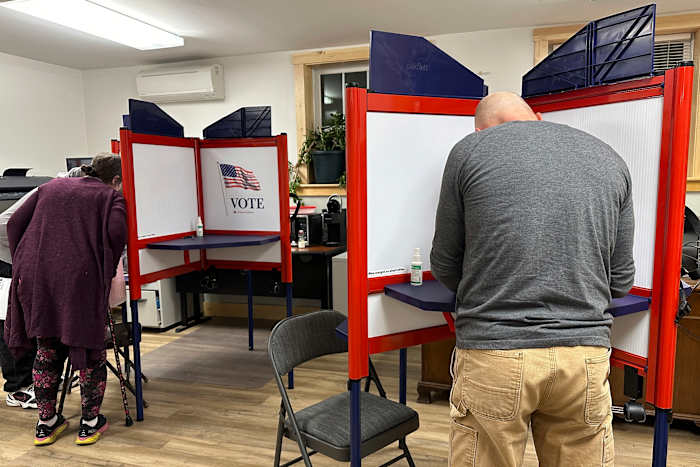Republicans in Congress are poised to swiftly advance legislation to reform the country’s voting systems, leveraging their recent electoral victories that have placed them in control of the White House and both congressional chambers.
The Republican agenda includes implementing stricter voting measures such as voter ID and proof-of-citizenship requirements. The party argues that these changes are essential to restoring public trust in elections, which they claim has been compromised by unfounded allegations of widespread fraud during the 2020 election cycle, propagated by President-elect Donald Trump and his supporters.
Key legislative efforts anticipated from the Republicans include the American Confidence in Elections Act (ACE) and the Safeguard American Voter Eligibility Act (SAVE). GOP Representative Bryan Steil, who heads the Committee on House Administration, has emphasized the intent to not only progress these initiatives from the committee to a full House vote but ultimately to enact them into law. Steil expressed the necessity of enhancing American voter confidence in the electoral process during his statements.
Despite the Republican push, there is expected opposition from Democrats, who hold a narrow position against these reforms. New York Representative Joe Morelle, the lead Democrat on the administration committee, acknowledged potential bipartisan agreements in some areas but criticized the GOP’s broader legislative efforts as excessively restrictive on voting rights. Morelle advocates for federally funded support for election offices and expresses interest in discussions around reducing foreign financial influence in U.S. elections and potentially implementing a voter ID requirement with adequate protective measures for voters.
The Democrats’ opposition stems from a belief that Republican-led initiatives, such as the SAVE Act, which previously cleared the House but stalled in the Senate, could unfairly restrict voting access. This law, among other measures, seeks to mandate proof of citizenship to register to vote, which Democrats argue targets vulnerable groups including students and transient populations by setting high barriers for verifying identity and eligibility.
Notably, in Georgia, audit efforts have been conducted that aim to ensure the accuracy of voter registries, which include regular checks to confirm the citizenship of registered voters. Republican Secretary of State Brad Raffensperger indicated that despite heightened political polarization, such audits are instrumental in building voter trust by demonstrating the integrity of the electoral process.
Raffensperger, alongside his Democratic counterpart in Michigan, Jocelyn Benson, voiced concerns about the potential elimination of early voting and mail-in ballots. Both officials emphasized these practices’ popularity and their role in facilitating broader voter access, advocating for taking lessons from current successful state-level practices to inform any potential federal reforms.
As the Republicans prepare to leverage their congressional majority to push through significant changes to voting laws, the debate over voter access and election integrity continues to intensify. The outcome of this legislative effort will have lasting impacts on the U.S. electoral landscape, underscoring the ongoing tension between ensuring accessible voting rights and maintaining strict electoral security.
Source: News4jax








